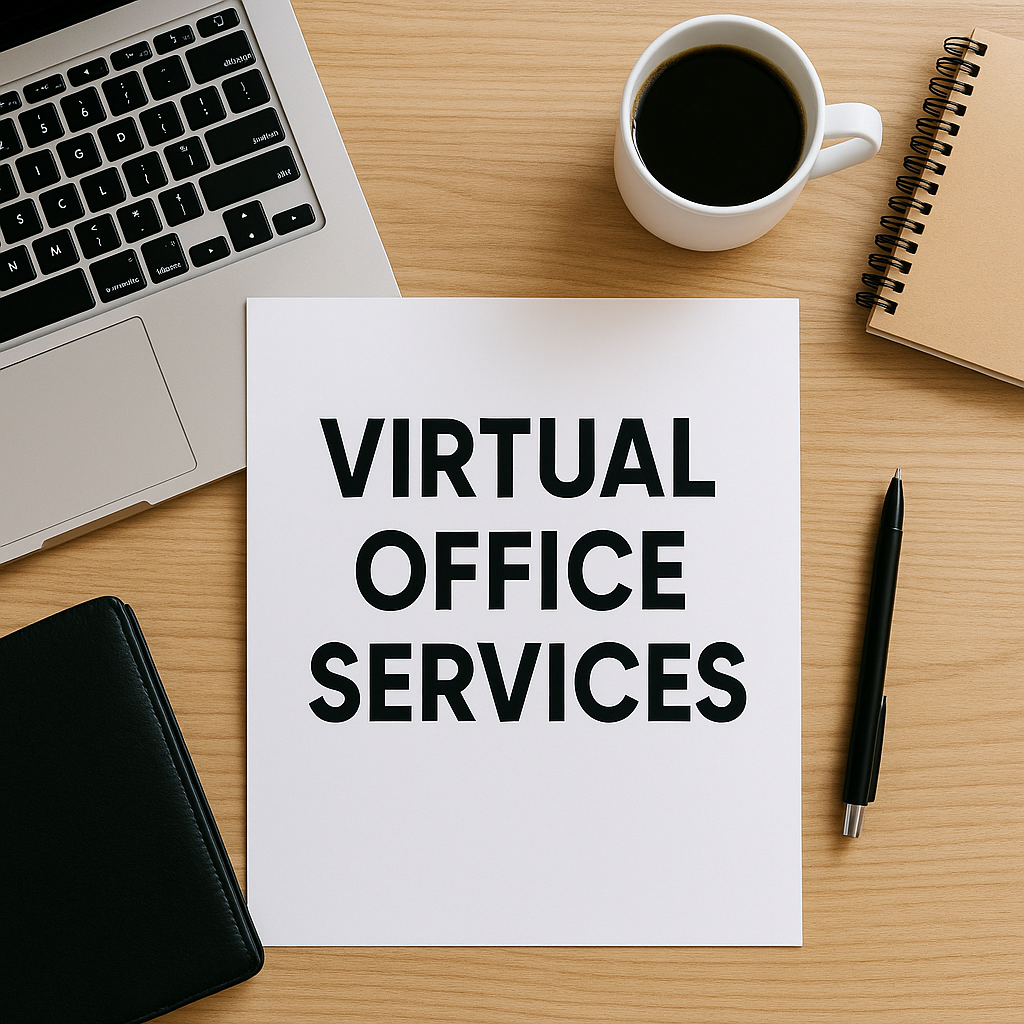
India’s eCommerce landscape is experiencing unprecedented growth. With the market projected to reach $650.4 billion by 2033, exhibiting a CAGR of 19.70% during 2025–2033, direct-to-consumer (D2C) brands and digital-first startups are exploring innovative strategies to scale efficiently.
One such strategy that is gaining traction is the use of virtual offices for GST registration and compliance.
What Is a Virtual Office for GST Registration?
A virtual office provides a legally recognized business address without needing a physical workspace. This address can be used for GST registration, compliance, and business correspondence. For e-commerce businesses, especially those operating across multiple states, virtual offices offer a cost-effective solution to meet regulatory requirements without the overhead of physical offices.
Why Are Virtual Offices Essential for eCommerce Startups?
1. Simplified Multi-State GST Registration
Under India’s GST framework, businesses must register in every state where they supply goods or services. This means obtaining multiple GST Identification Numbers (GSTINs) for eCommerce sellers. Virtual offices provide the necessary documentation, such as rent agreements and utility bills, to facilitate state-wise GST registrations without establishing physical offices.
2. Access to Local Fulfillment Centers
Marketplaces like Amazon and Flipkart require sellers to have GST registration in the state where their fulfillment centers are located. By using virtual offices for GST registration, sellers can store inventory closer to customers, leading to faster deliveries and improved customer satisfaction.
3. Cost Efficiency
Establishing physical offices across multiple states involves significant expenses, including rent, utilities, and staffing. Virtual offices eliminate these costs, allowing startups to allocate resources more effectively towards marketing, product development, and customer acquisition.
4. Enhanced Credibility and Compliance
Having valid GST registrations across states enhances a brand’s credibility with customers, marketplaces, and regulatory bodies. It demonstrates compliance with tax laws and readiness to operate at scale. Moreover, GST registration enables businesses to claim Input Tax Credit (ITC), improving cash flow and profitability.
Real-World Example: Scaling a D2C Brand Across India
Consider a Jaipur-based skincare brand aiming to expand into southern India via Amazon. The brand secured GST registrations in these states by obtaining virtual office addresses in Karnataka, Tamil Nadu, and Telangana. This strategic move allowed them to
Store products in local fulfilment centres
Reduce delivery times to major cities
Enhance seller rankings on Amazon
Increase monthly sales by over 30% within three months
All were achieved without establishing physical offices in these states.
Key Benefits of Virtual Offices for eCommerce Startups
Multi-State Compliance: Facilitates GST registration across various states without physical presence
Operational Flexibility: Enables access to local warehouses and fulfilment centres
Cost Savings: Reduces expenses associated with setting up and maintaining physical offices.
Improved Cash Flow: Allows claiming of Input Tax Credit, enhancing profitability
Scalability: Supports rapid expansion into new markets and regions.
Choosing the Right Virtual Office Provider
When selecting a virtual office provider, consider the following:
GST Compliance: Ensure the provider offers addresses that meet GST registration requirements.
Documentation: Verify that necessary documents like rent agreements, NOCs, and utility bills are provided promptly.
Customer Support: Opt for providers with responsive support to assist with KYC, documentation, and tax-related queries.
Additional Services: Some providers offer mail forwarding, call answering, document scanning services, and on-demand workspace access.
Legal and Tax Considerations You Shouldn’t Overlook
While virtual offices simplify expansion, startups must stay sharp on compliance. GST is state-regulated, and tax authorities may verify the legitimacy of your registered address. If your documentation—rent agreement, NOC, or utility bill—is outdated or incorrectly formatted, your GST registration could be delayed or rejected.
Worse, during audits, incorrect documentation can lead to penalties or denial of Input Tax Credit (ITC), directly affecting your cash flow. Some states may even conduct physical verifications, so the address must be accessible and legally valid.
To avoid surprises, partner with a CA or GST expert who can ensure all documents meet state-specific norms. Recheck compliance if you renew, change locations, or prepare for fundraising or partnership due diligence.
Quick Tip:
Choose providers with a track record of successful GST registrations in your target states. Proper paperwork today saves your time, money, and future legal hassle.
The Smarter Way to Scale in 2025
In the dynamic landscape of Indian eCommerce, virtual offices for GST registrations have emerged as a strategic tool for startups aiming to scale efficiently. By facilitating GST compliance, reducing operational costs, and enabling access to local fulfillment centers, virtual offices empower D2C and e-commerce businesses to expand their reach without the burden of traditional infrastructure.
Frequently Asked Questions (FAQs)
1. Can I register for GST in multiple states using virtual offices?
Yes, virtual offices provide legally valid addresses that can be used for GST registration in various states.
2. Are virtual office addresses accepted by marketplaces like Amazon and Flipkart?
Yes, as long as the address complies with GST requirements and matches the state where your fulfillment center is located.
3. What documents are provided with a virtual office plan?
Typically, you receive a rent agreement, No Objection Certificate (NOC), and a utility bill for GST registration purposes.
4. Can I claim Input Tax Credit (ITC) with a virtual office?
Yes, once registered under GST in a state, you can claim ITC on business-related expenses.
5. Is a virtual office suitable for new eCommerce startups?
Absolutely. Virtual offices are ideal for early-stage startups looking to expand without incurring high operational costs.